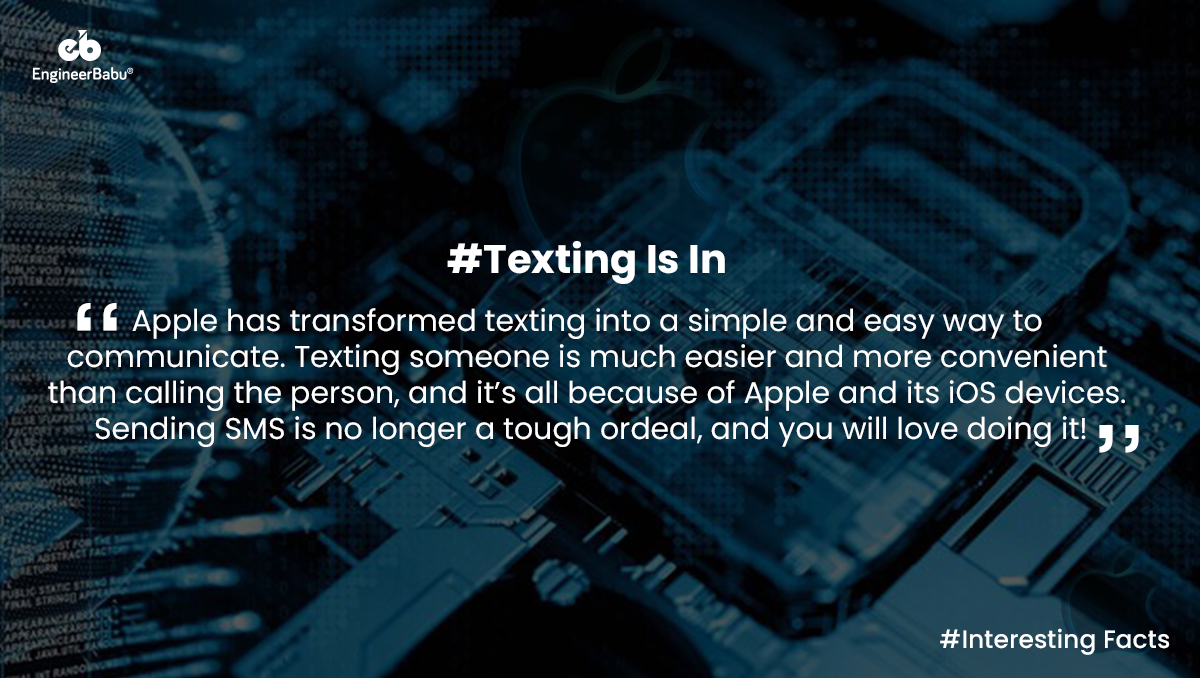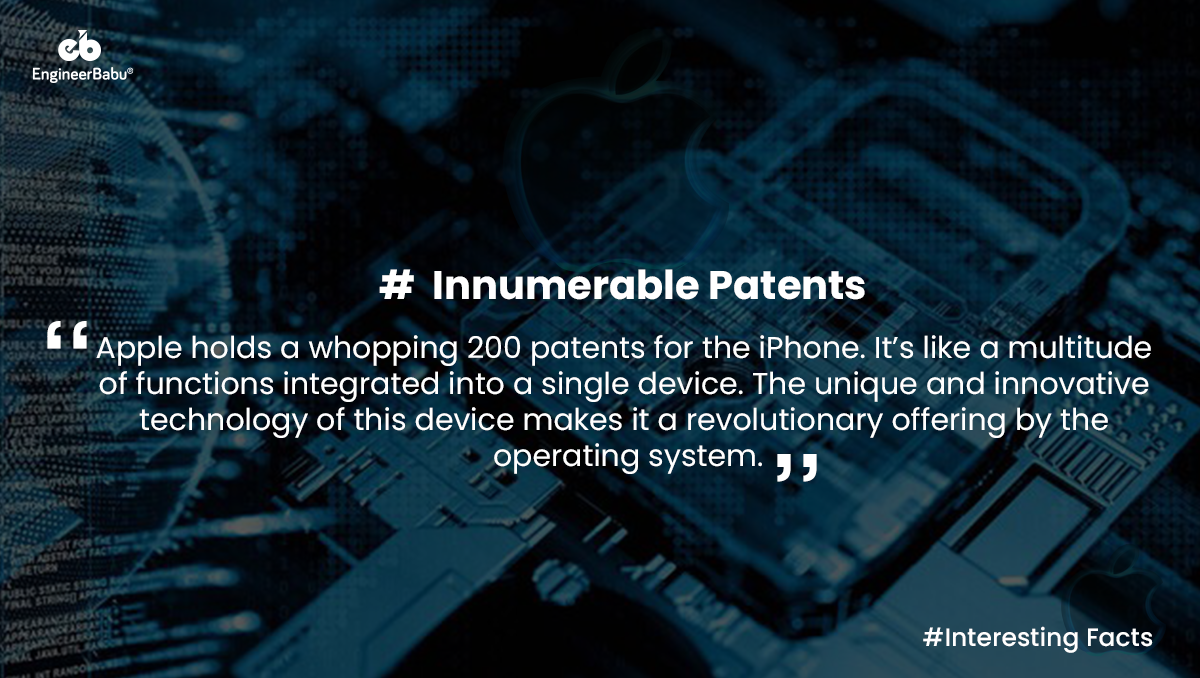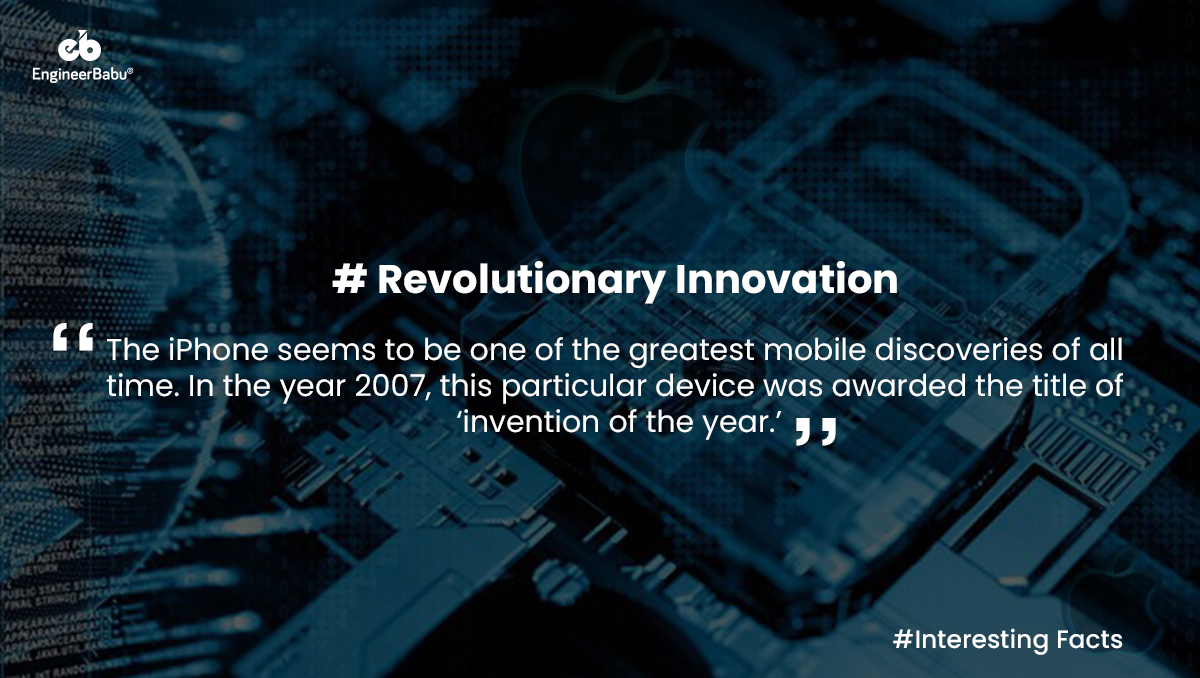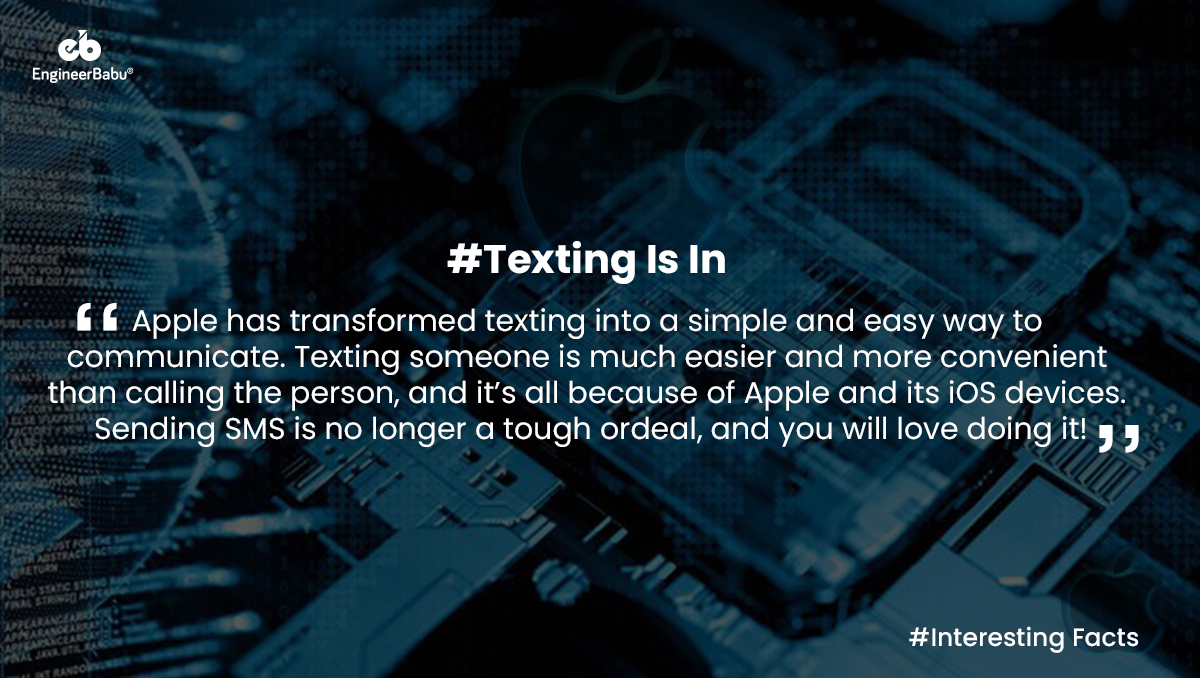Mobile applications have become one of the key elements of digital transformation. It is every entrepreneur’s goal to effectively hire iOS developers for building an iOS mobile app. Yet, there are some crucial factors that make it quite tedious in doing so.
This includes whether you ought to search for onshore or offshore iOS Developers hiring. In the times of COVID-19 pandemic, you may also consider to hire remote iOS developers who can work efficiently and dedicatedly on your project.
But, are you aware about the major aspects of iOS Technology, its market presence, and what the future holds for this kind of technology – especially when you’re an Entrepreneur of Non-Technical background? Do you know about finance and other details involved in it? Don’t worry, we’ve got you covered.
This Digital Transformation guide is full of the foremost relevant Facts and Statistics to enable you to make a more informed decision without even consulting any CTO. In no time, you’ll have very sound knowledge about iOS development.
In addition, let us tell you why we are experts on this topic; we have worked with 1000+ CTOs, hundreds of products amongst them have been funded by VC including MIT Delta V, Harvard innovation Lab.
After going through this blog, you will know the in’s and out’s of iOS technology and how to hire iOS developers, which we are going to discuss thoroughly.
Suitable Technology for iOS App Development
Ever since its inception, the Mobile App Development Industry has seen the increase and fall of a variety of app programming languages. But quite frequently, we have observed that only those programming languages survive which makes developers work easier, gives developers space to experiment, and is proving cost-effective for businesses.
When we see the price of a programing language from a developer’s point of view, there are often many factors that need to be chimed in, but once you measure a programing language from the point of view of a business, there are very to the purpose factors that need to be considered, with the most ones being – Cost of Development, Time it takes, and thus the Scope of further innovation or update.
While things are pretty straightforward with Android apps, things get difficult on a special level when it involves deciding on a programming language for developing an iPhone app. As a Mobile App Development Company, we frequently get questions from clients seeking help with choosing from Apple Programming Languages – Swift and Objective-C.
Choose Right Technology for Your iOS App
The need to develop a mobile app for your enterprise is now identified. Now you’d wish to make a choice on your mobile application strategy and make the right choices in technology. One fundamental question is, should it be a native app, an online app or a hybrid app? What’s the difference between these choices, exactly?
Native apps are standalone software installed directly onto a smartphone, a bit like the “app store” mobile apps were conversant in. These are developed for one platform in their native programming language – Objective C (Apple iOS), Java (Android) or C# (Windows Phone).
Web apps, generally function through web browsers on mobile devices. They are developed using web standards (HTML5, JavaScript, CSS3), which suggests that one version will work across multiple platforms: iPhone, iPad, Android Phones, tablets, or Windows Mobile.
Hybrid apps combine features of native apps and web apps. Such apps are efficient in offering both worlds in some cases. But first let’s check out the differences between these two primary categories. While the technology is often transparent to users, native apps and web apps each offer unique features and benefits.
Difference Between Native And Web Apps

The selection of technology could also be a fundamental choice, which can determine how your app is developed. Therefore the users may interact with it in a manner. Selecting the wrong technology is often a costly mistake, resulting in poor performance or inaccessibility.
With advances in smartphone browsers and HTML5, the functional gap between mobile websites and native apps continues to shut. However, in some instances, it’s possible to develop a uniform, feature-rich user experience using either approach. The landscape is changing frequently, so it’ll be vital to remain up with the most recent developments to make the only decisions in mobile app strategy going forward.
The good news is that when you’ve defined your business objectives, audiences, and technical requirements, then the proper approach between native and web apps is usually a transparent choice.
For example, if you require an app for your sales division to use exclusively on their assigned iPads. Then you’d possibly want to travel for a native app. If your app goes to possess a general consumer audience, the wide accessibility of an online app could make more sense.
Collaboration with unlimited resources offer both web app and native app options to ensure their applications offer optimal user experience and accessibility. Of course, not all organizations can afford this luxury.
It is becoming a popular option, as previously mentioned, is that the hybrid mobile app. It suggests that majorly apps are developed in reusable HTML5 web app technology, however, it is wrapped within a native app wrapper. This enables the app to utilize native app functionality and distribution. Though, it also reduces the event effort when creating versions for extra platforms.
It is predicted that the majority of mobile apps are going to be web apps within the longer term. But it is necessary to remember there is no clear winner that works best altogether. Native apps and web apps are just two different solutions. As technology evolves, this subject will remain the most targeted, discussed and debatable in mobile app strategy and hire iOS developers to build the app.
What is iOS App Development?
iOS is Apple’s mobile Operating System that runs on various Apple’s devices such as an iPhone, iPad, iPod Touch hardware. Apple developer provides tools and resources for creating iOS applications and utilities for these devices.
There are mostly two programming languages considered for iOS development, Objective-C and Swift. Let’s take a brief look at both languages.
Objective-C
Developed in early 1980s. Objective-C was the first programming language for all Apple products for many years. Objective-C is derived from the C language. It is an object-oriented programming language centered around passing messages to different processes (as opposed to process invoking in traditional C programming). The App Store now also accepts programs that are written in Objective-C.
Swift
Swift is the new “official” language of iOS, while it is quite similar to Objective-C. It is developed to use easy syntax and is more focused on security than its predecessor. Because it shares a runtime with Objective-C. It is an easier programming language to include legacy code into updated apps. Swift is straightforward to find out, even for people just starting to program. Because it is quicker, safer, and easier to use as compared to Objective-C. Thus, you ought to decide to use it to develop your iOS app unless you’ve got a compelling reason to stick with Objective-C. It is the major reason for shifting trends towards Swift and entrepreneurs hire iOS developers specialized in Swift. Hence, you can look to hire iOS developers to build your mobile application.
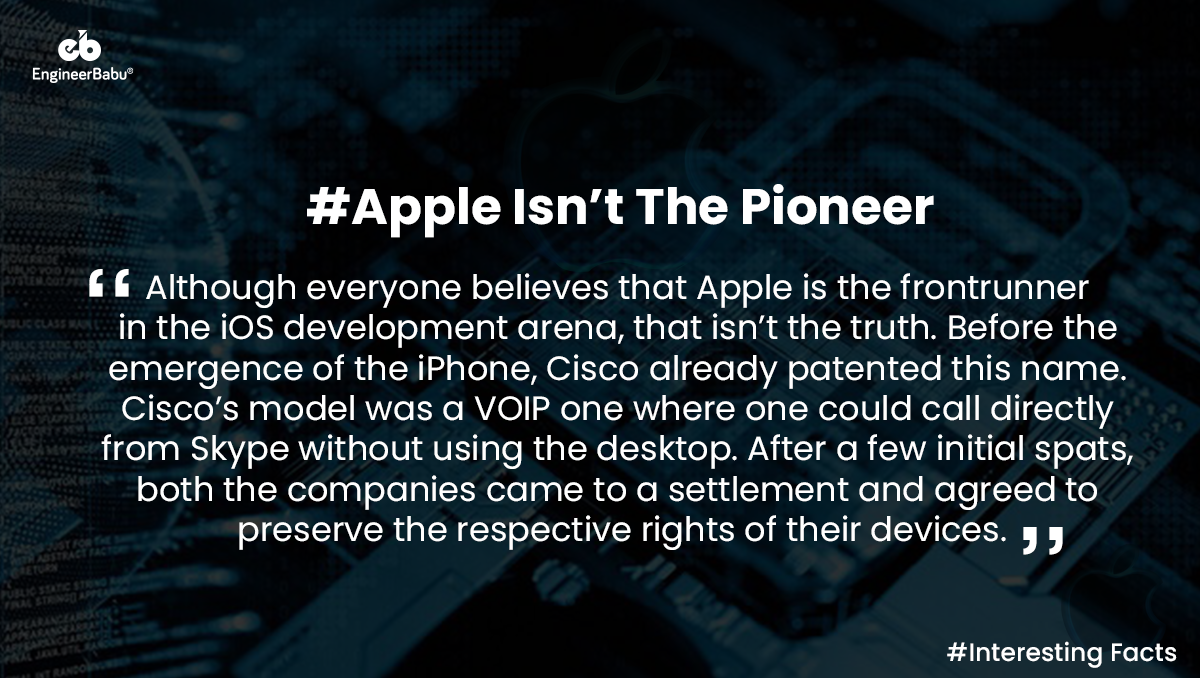
Features of Swift
Swift already has features that make code easier to read as well as write, while giving the developer the control needed during a true systems programming language. It supports inferred types to form code cleaner and fewer susceptible to mistakes, and modules eliminate headers and supply namespaces.
In Swift programming, the memory is managed automatically and you don’t even have to type semi-colons. Swift also takes from other languages, example named parameters brought forward from Objective-C is expressed during a very clean syntax that creates APIs in Swift easy to read and maintain.
The features of Swift are designed to figure together to make a language that’s powerful, yet fun to use. Some additional features of Swift include:
- Closures unified with function pointers
- Tuples and multiple return values
- Generics
- Fast and concise iteration over a variety or collection
- Structs that support methods, extensions, and protocols
- Functional programming patterns, e.g., map and filter
- Powerful error handling built-in
Swift Plays a Major Role in iOS App Development
1. Easier To Maintain
Objective-C was unable to cope up with the ever-changing demands in the iOS platform. Objective-C can’t evolve without the evolution in C language, that’s the rationale which is holding it back from evolving. C language requires programmers to take care of two files for the creation of the executable app, same is the case with Objective-C. Hence, you can look to hire iOS developers to easily maintain the app in future.
2. Safer Than Other Languages
For iOS applications safety is a top priority, especially crucial for app-based startups. Swift tutorial would be another benefit if the app is simpler to take care of, thus Swift offers high maintenance while Objective-C lacks it. The entire code block becomes non-functional.
If you call a method with a null pointer variable returning nothing. Android application building services seem quite beneficial due to its app crash prevention.
However, it is considered as bad coding practice as it opens the doors for hundreds of bugs. While in Swift, a compile-time error is generated when a null pointer variable is found. It eliminates the possibility of bad code ensuring that programmers write code compulsorily helping them to fix issues right away with easier bug identification and fixing process. Hence, you can look to hire iOS developers to ensure security of your application.
3. Unified In Memory Management
The Automatic Reference Counting (ARC) inside Objective-C, supports Cocoa Touch APIs and object-oriented code eliminating the use of procedural C code & APIs.
Swift provides complete support whether the code is object-oriented or procedural, making the coding process easier for the developers. In Objective-C, when working with procedural code, low-level APIs and Core Graphics APIs, it’s the responsibility of programmers to handle memory management. However, Swift handles all memory management tasks at compile time with the use of ARC. It saves time as well as the brainpower of developers required in the creation of the iOS app’s logic. Hence, you can look to hire iOS developers as it is easy to manage memory.
4. Supports Dynamic Libraries
Dynamic libraries are the executable blocks of codes that can be linked with an iOS app. In other words, Dynamic libraries are considered as external files of the iOS app, however, these are included inside the app bundle which is downloaded from Apple App Store.
Before the introduction of Swift programming language, iOS didn’t have support for dynamic libraries, though they were available in Mac. With Swift, it is not possible to add dynamic libraries with the iOS app. Swift apps can now be linked with the latest version of Swift language reducing the size of the app. Swift apps aren’t heavy at all as external codes are only lined when they are used by iPad application development companies. Hence, you can look to hire iOS developers as it supports many libraries.
Android vs iOS Market Share Worldwide

The first phase of the Apple vs Android showdown involves global numbers. The battle for iPhone users and Android users takes place mainly on smartphones, but Apple and Google have large market shares on tablets and other smart devices. The low percentage of iPhone and Android users in 2019 looks less appealing to Apple than in the case of tablet devices.
According to the latest statistics and smartphones worldwide, Google was a huge force in the last year. However, the popularity of the iPad has helped Apple beat its competitor to a higher position in the tablet market.
- Android and iOS share an account with more than 98% of the market share of the global smartphone apps.(Statement)
- Android comes as the most popular Operating System used in the world with 40.47% of the market share on all types of devices. (StatCounter)
- 14.92% of the global Operating System market, iPhone ranks third on all of these platforms, behind Android and Windows. (StatCounter)
- The present market share of Android applications currently represents 74.13% in the global mobile operating system market. (StatCounter)
- iPhone market share makes up 24.79% of all smart phone devices. (StatCounter)
- Apple dominates the tablet market, with iOS accounting for 63.11% of all apps installed on smartphones around the world. (StatCounter)
- With 36.65% of the market share of the tablet, Android is the second most popular tablet OS in the world. (StatCounter)
- IDC predicts that by the year 2022 the stock market for Android and Android devices will account for 100% of the market (87% Android and 13% iOS). (IDC)
Android and iOS in the United States
If you look at global statistics, it is clear that Android emerged as the winner in the global market in all categories except smart tablets. But what is the situation in America? The battle of Apple iPhone vs Android devices made by dozens of other manufacturers looks like home? Even a causal analysis of the Android vs iOS market share in the US gives us a very different picture compared to the statistics we have seen around the world.
Considering how many people have iPhones in America, it’s no surprise that it’s still one of the most difficult markets in the world for Google to split. Hence, you can look to hire iOS developers to build your mobile application.
9. More than a third of all US devices (33.26%) have iOS installed. (StatCounter)
10. iOS is the preferred OS for more than half (55.55%) US users. (StatCounter)
11. With 70.21% of all devices running iOS, Apple is the most powerful in the tablet market. (StatCounter)
12. A quarter of market share (25.28%) makes Android the Number 3 of popularity of Operating Systems on all platforms in the United States. (StatCounter)
13. 44.29% of mobile users in the United States have Android installed on their phones. (StatCounter)
14. Android is the OS of choice for almost three in ten tablet owners in the United States (29.54%). (StatCounter)
Android vs Apple in Europe
By comparing the market share of iOS vs Android in Europe, we also came across a very different picture. Unlike States, Apple has a very small presence in the smart device market in Europe, maintained only by its strong presence in the smart tablet market. The differences between iPhone and Android devices are less noticeable in the United Kingdom, where these apps are equally compatible.
15. With 33% market share, Android is the second most popular OS in Europe, after MS Windows. (StatCounter)
- iOS is installed on 14.33% only European smart devices and computers. (StatCounter)
- In Europe, Android is the leading smartphone platform with a market share of 71.76%, followed by iOS with 27.58%. (StatCounter)
- In terms of tablets, iOS is the leading OS with 59.69% of the EU market, ahead of Android with 40.09%. (StatCounter)
- DeviceAtlas mentioned that the iOS & Android market shares in the UK are quite balanced (49.9% 50.1%).(DeviceAtlas)
iOS vs Android in Asia
Android is the biggest force in Asia. Because desktop computers are a luxury in many homes in China and India, smartphones are the main devices used by most Asians. Therefore, the market share of Android vs iOS is very much prone to the past, which can beat Microsoft Windows as the most installed OS on all types of devices in Asia. Guessing, the tablets save Apple’s day too, albeit a relatively small market.
- More than half of all Asian devices (53.63%) are powered by Android. (StatCounter)
- Android is the king of mobile apps in Asia, with a large market share of 85.9%. (StatCounter)
- iOS has a small share of the smartphone market of 8.6% and 12.69% in Asia. (StatCounter)
- Apple leads the tablet game in Asia, with a market share of 58.62%, ahead of 41.18% for Android. (StatCounter)
Share of Android vs iOS Market in Africa
Considering the popularity of the word ‘Android vs iPhone’ search, most people do not distinguish between apps (Android, iOS) and mobile phones (Samsung, LG, iPhone). Aside from counting the United States, this is important for other continents, where iOS returns the battle to Android with the popularity of its iPad tablet devices. In Africa, however, Google rules at all levels equally. The iOS market is so small that it is well beaten by Android on all devices.
- Android dominates all categories in Africa, with a market share of 51.16% on all devices, 83.78% on mobile devices and 71.15% on tablets. (StatCounter)
- iOS is the third most popular OS in Africa on all devices (7.4%), and the second most popular when it comes to mobile phones (11.28%) and tablets (28.55%). (StatCounter)
Share of iOS vs Android Market in Latin America
Latin America is another area where Apple flat loses to Google in all relevant categories. If we look at the market share for Android and iOS in 2019 and beyond, we can see Apple’s negative numbers when it comes to full numbers and mobile phones, with tablets that slightly improve the situation but not enough for iOS to surpass Android in that category.
- The market share of Android devices in Latin America comes first in the mobile (89.47%) and tablet markets (59.23%) but secondly in all devices, after Windows. (StatCounter)
- Latin America has the lowest share of the iOS market – 3.75% overall, 9.83% in the mobile market, and 40.56% when it comes to tablets. (StatCounter)
Comparison Between Swift and Objective C
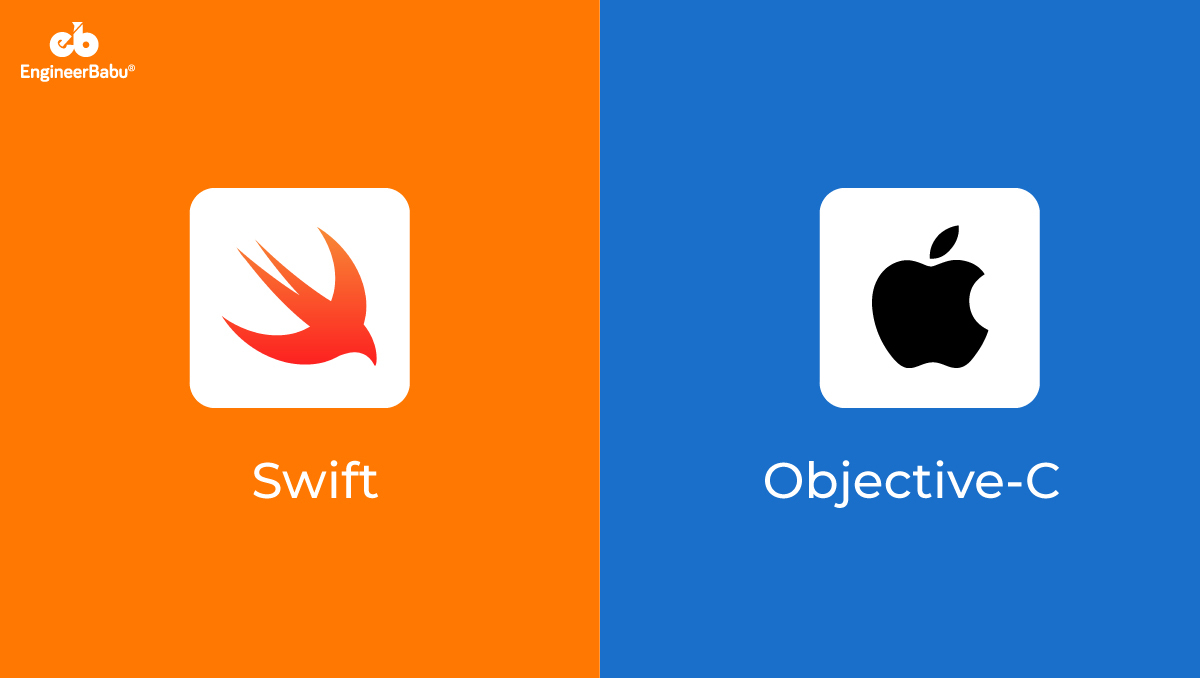
The most popular languages they find are part of Swift and Objective-C mobile app development technologies. Hence, you can look to hire iOS developers.
Objective-C to be the main basis of the C language provides a strong working environment and skills focused on the object.
But we recommend Swift over Objective-C, because the language is more efficient and provides more frequent errors. It also contains powerful libraries that are loaded directly into memory, reducing the size of the original application and increasing its functionality.
Let us tell you about the directions below.
-
The Best Language
Users, these days, prefer mobile apps that are integrated with the latest technologies and strategies. Since Swift is a brand new language compared to Objective-C, it would be helpful to build your own app in Swift.
-
Rapid Development
Swift provides clean syntax, making it easy for developers to read, write and modify code. Also, it has been found that the lines of codes in the Swift language are much smaller than those of Objective-C. This means that your iOS app will be upgraded in less time and at a lower cost, especially when a mobile app company has rented an hourly payment. Hence, you can look to hire iOS developers.
-
Strength
Swift is an open source that makes it easy for iOS app developers to use Swift on a variety of platforms and back-up infrastructure. One can easily upgrade all source codes, bug tracker and email list from time to time. Because of its durability, one can surpass technical documentation. This, in turn, empowers developers to build new applications in the future. Apart from this, mobile app experts can send their feedback to Apple on the development of Swift’s development language, with the presence of Jira- bug tracker. Hence, you can look to hire iOS developers to build your mobile application.
-
High Speed
According to the top application development agency, Swift uses fast mathematical algorithm metrics and thus, offers high-quality benefits. As a result, it is highly developed by developers.
-
Low Nutrition
When you talk about the development of the iOS app in Objective-C language, you can’t push updates without C’s involvement. However, no such dependence is observed in the case of Swift’s development language. Therefore, it is easier to do Swift maintenance than Objective-C.
-
Safe
Swift has removed various traps found in Objective-C development, which means you will find a secure business app. Hence, you can look to hire iOS developers to build your mobile application.
-
Minor Memory Use
Objective-C had an object link that used some of the computer’s RAM, but not so in the case of Swift. Swift development was a one-stop-shop program and switched to architecture. The amount of data type and SDK classes has also decreased, which has ultimately made the memory more efficient.
-
Quick Integration
Another advantage of choosing Swift over Objective-C is that it combines data at faster speeds. The LLVM (Low-Level Virtual Machine) integrator has been used to create traditional code for active platforms. This allows developers to rewrite multiple groups as properties. On the comparison side, Objective-C has only a few classes that lead to slow-moving codes and overtime.
-
Provide Multilingualism
Swift is structured with a multilingual system because application developers can better understand the language and develop a wide variety of applications ranging from simple to complex.
In addition to the benefits mentioned above, Swift is also a great way to develop the Enterprise app because it uses the latest features of all programming languages and allows developers to build a fully functional Android platform app. It is no exaggeration to say that Objective-C is over and Swift is the future of mobile app development. When making an iOS app, especially an Enterprise mobile app, it is best to go with the most advanced and effective way. Hence, you can look to hire iOS developers to build your mobile application.
Some Do’s of iPhone App Marketing and Promotion
-
Do Analyze Similar iOS Apps
While planning an iPhone app marketing program, you should explore ways to make your app stand out from the crowd. You can’t make your iOS app stand out from the crowd without understanding and analyzing the same iOS apps available in the App Store. It is always a good idea to spend some time writing down the features and functionality offered by similar apps. Also, you can check the pros and cons of competing apps by reading user reviews and ratings. If you hire iOS developers, who are experienced in optimizing the functionalities then you need not worry about analyzing similar apps.
-
Do Configure iPhone App for App Store
Your iPhone app marketing strategy should focus on improving app quality and visibility in the App Store search results. Improved discovery will let more users see your app and download it. You can improve app availability by using many good App Store Optimization (ASO) practices – use preview video, including additional screenshots, promote the app via external channels, and persuade users to submit updates and ratings. ASO will help you increase app download over time. Hence, you can look to hire iOS developers to easily configure your app for App Store.
-
Do Crossing Promote your iPhone app
You can easily promote the iPhone app in a smart and inexpensive way by making a promotion. The marketing option allows you to promote your app by placing ads within other iPhone apps. But you also need to install location-based ads for other apps in your iOS app. You can even cross-promote the app by consulting with other developers. If you choose the opposite promotion, it becomes important to choose an iPhone app that is already popular and appropriate for your application. Also, you should build personal relationships with iOS app developers to promote your app aggressively.
-
Launch Free and Paid Versions for iPhone app
The iPhone is considered a rich man’s phone. You can’t increase app downloads immediately without making the iPhone app available as a free download. It is always important to present both free and paid programs for the same app at the same time. It will be easier for you to make the paid version of the iPhone app popular by allowing users to get the basic features with the free version. However, you can still make the free version of the iPhone app profitable by using in-app monetization strategies such as in-app ads, in-app purchases and sponsorship.
-
Do Create and distribute original content
When you do an iPhone app marketing program, you should not ignore content marketing. Many users still select and download iPhone apps based on information collected from a variety of sources. You can easily connect with targeted customers by creating and distributing new content. It is always a good idea to start a blog and post new content regularly. You can even use blogs for both the power of search engines and social media marketing campaigns. However, it is also important to make target users of the iPhone app read your blog posts through channels such as online forums, social media platforms, and web-based advertising.
Some Don’ts for iPhone App Marketing and Promotion
-
Don’t forget to start upgrading the iOS app early
Marketing for your iPhone app should focus on creating a buzz before the mobile app can be launched. It’s always important to start promoting an app early to generate buzz. Buzz and hype will help you increase app downloads within the allotted time. You can also consider promoting the app before its launch to create pre-launch buzz. The pre-launch buzz will help you make more users aware of the iPhone app shortly after its launch. Therefore, your iPhone app marketing strategy should focus on promotional launch and posting. Hence, you can look to hire iOS developers as they can anticipate any update that is released.
-
Do not ignore Two Channels
Developers can easily speed up the marketing of the iPhone app by contacting and engaging users. You should include a variety of communication channels in the app to make it easier for users to post suggestions and feedback. You can even use channels to make users feel special. Communication will help you improve user experience with understanding of user expectations and preferences. However, you should answer user questions, suggestions, and problems effectively to make them feel special and refer to the app.
-
Don’t Forget To Encourage Users To Return To The iPhone App
Your iPhone app marketing plan should focus on urging users to download the app and return to the app regularly. Many studies suggest that many users leave mobile apps after one use. You should encourage users to return to the app and use it regularly. You can motivate users to return to the app in many ways. But you can easily engage users by keeping the iOS app usable and responsive. You can also persuade users to access the app regularly by doing gamification. Hence, you can look to hire iOS developers and ask their opinion on how UX can be improved so that users will return to the app more frequently.
All in all, the iPhone app marketing program will help you to promote the iOS app dynamically and increase app downloads faster. But you should remember that the iPhone app marketing is an ongoing process. In addition to launching pre-launch and pre-launch advertising campaigns, you also need to monitor, rate, and improve your marketing campaign consistently. It is also important to update the iPhone app regularly and make changes to the marketing strategy to make new users aware of the app and to encourage existing users to return to the app.
Tech Giants Hire iOS Developers Specialized in Swift for App Development
Facebook:
The world’s most popular social networking platform that adopts Swift does not need proof that it is popular and powerful. Connect with friends, family and people who share similar interests, communicate privately, view your preferred content, shop and sell items or spend time with your community – you have it all.
Uber:
A well-known name, an international passenger boarding company, Uber used Swift and its persistent branding. Drive an Uber ride, rent scooters, and get there comfortably. With Uber, your target is in your hands. Just start the application and feed-in where you want to reach, and the nearest Uber rider will help you get there reliably. Hence, you can look to hire iOS developers for developing a similar app.
Loosening:
A business communication platform, Slack brings together all your communications and tools in one place. It has been making extensive use of Swift in its technical stack, in bringing team communication and partnerships into one place to get more work done. Complete your to-do list and submit your projects by continuing to find the right people, interviews, tools and information you need together.
Fitbit:
You almost saw this device in each hand and this app is always downloaded. Fitbit has become a trusted name in the world of health and fitness. The Fitbit app for iOS is built with Swift and offers custom health programs, exercise videos, tracking basic stats and controls with a Fitbit tracker or smart watch. Hence, you can look to hire iOS developers for developing a similar app.
Khan Academy:
An internationally recognized non-profit educational organization; Khan Academy uses Swift to build its entire website. Student, teacher, home student, principal, adult – be it anyone, Khan Academy library is available, free of charge.
Lyft:
Based in the US, Lyft is a popular taxi booking organization based on an app that enjoys Swift as its primary language. A friendly, affordable ride whenever you want, Lyft helps you get to your terminal and experience the best carpool of your life with loyal drivers. Hence, you can look to hire iOS developers for developing a similar app.
LinkedIn:
The most controversial official in the professional network used worldwide by many professionals, LinkedIn relies on Swift’s solid platform created over the years. It allows you to navigate your work with confidence, be it to find a new job, to connect with your network, or to get the latest of your connections with your industry.
WhatsApp:
A well-known, widely used, and connected name – WhatsApp is a simple, secure and reliable app. Swift is one of the leading languages that has made this app popular and dynamic. As a free messaging app, it uses the phone’s internet connection to send/receive messages, photos, sounds, videos and much more.
Instagram:
One of the founders when it comes to sharing photos and albums, Instagram is among the best apps downloaded and yes, it uses Swift. It brings you closer to the people you interact with, explores the community, shares everything you want and connects with everyone. Hence, you can look to hire iOS developers for developing a similar app.
Airbnb:
The most modern app that has become the theme of the tourism organization, Airbnb has also used Swift to its full potential. A great app for iOS users is built using Swift and that makes the app run very smoothly despite difficult traffic times. It offers an unforgettable travel experience with home rental access, places to visit and all sorts of booking arrangements.
Hence, like these tech-giants you can also look to hire iOS developers to build your mobile application.
Business Benefits of iOS App Development
-
Better Application Cost
iPhone apps usually have a greater Return of Investment than Android apps. The fact that it adds to the benefits of iOS app development, to a large extent.
Getting the best out of your money-making opportunities from your iOS app development process, looking for bugs, tips and tricks, and other related information can be a huge benefit. See our mobile app development guide based on the experience of our experts to get an idea of everything you need to know.
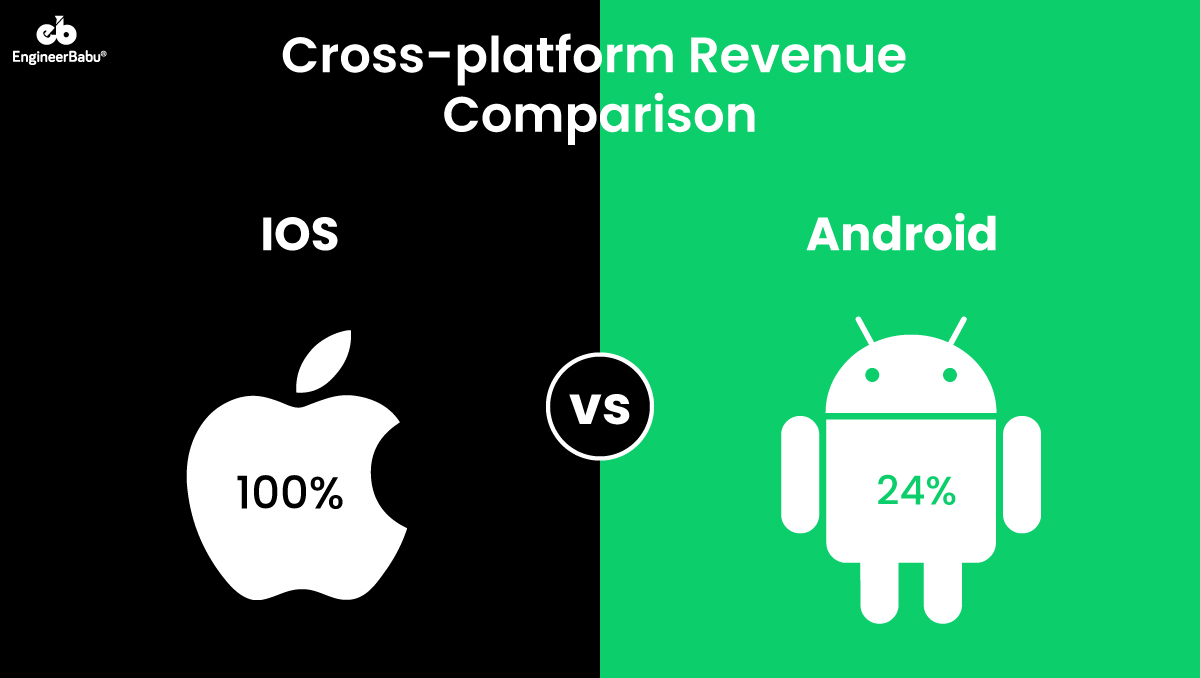
-
Enterprise Data Security
Access to sensitive business data embedded in apps is extremely dangerous with Android apps. on the other hand, when comparing iPhone and Android on the basis of security, iPhone apps, protect firmware and software with strict security measures such as:
- Integrated data management systems.
- Measures to prevent duplication of data.
- Measures to combat security loss due to data encryption.
iPhone users have been fired for anti-hacking and malware and this is also counted under the benefits of iPhone with Android. Hence, you can look to hire iOS developers to build your mobile application.
-
Higher Levels
The business development of the iPhone app remains incomplete until apps are designed to pass the highest levels of the Apple Play Store before they become available on the market. When a user downloads an iPhone app, they can be assured of flawless performance and amazing experience. This trust and interest in Apple’s legacy has succeeded in gathering a large and reliable foundation for iPhone app buyers.
Android app developers log into open libraries and follow an unconventional upgrade. This results in applications that provide a better user experience on some devices and a less satisfying experience on others. iPhone users are greeted by the same glowing UX on all devices.
-
Apps for all business needs
Brands of all scales and sizes have seen the benefits of having business mobile apps. Consumers expect to go out and respond to any business they’re dealing with – something that goes hand in hand with the iPhone app’s business development process. Mobile applications are a great gateway to reach customers on the go and stay in touch with them every minute.
iPhone apps, built-in or off the shelf, are available to suit all business needs. Apart from the fact that the cost of iPhone app development is much higher than other available options, iPhone apps are found to be of great benefit to businesses due to their guaranteed market access and better paying customers. Hence, you can look to hire iOS developers.
-
Established Customer Foundation
The user base developed by Apple, its foremost USP is also one of the key benefits of iOS app development. Apple is a pioneer in technology and usage. Although 75% of the app users are Android users. Apple has a niche of well-established customers who swear by Apple’s quality and performance. In fact, it is said that if a smartphone user hears iOS, they will never be satisfied with any other OS. Android apps have to fight hard competition as there are too many apps crowding this segment.
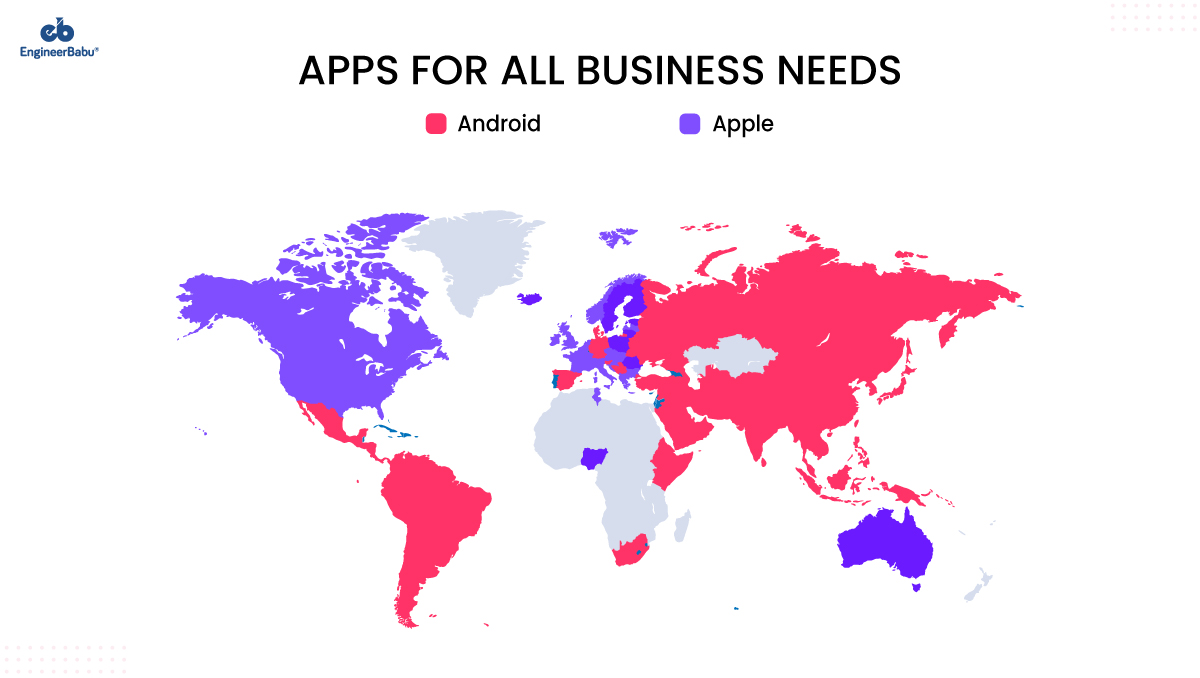
-
Exemplary User Experience
iPhone apps delight users with excellent user experience fully supported by Apple’s iOS native capabilities. Complete integration between software and hardware achieves the best performance of iPhone apps. Above all, complete customer support and care results in improved satisfaction among users with the life cycle of the app. Something that also adds to the benefits of choosing an iOS app upgrade.
-
Tech-Ready Audience
iPhone users are found to be tech-savvy and open-minded when it comes to innovating. This gives businesses more opportunities to make challenging applications that can create market disruptions. Businesses that prefer the iPhone app development can become market leaders and advance competitors.
-
Low and Easy Testing Separation
Apple usually starts a single update to its existing OS every year. Also, the number of Apple devices is lower than those based on Android. Therefore, Android apps must be fully tested in order to work properly on all types of Android OS. iPhone apps just have to meet the testing process for standard iOS versions. This greatly reduces testing time and ensures faster marketing time for iOS apps.
Apple Market is a combined thing. Approximately 89.8% of iPhone users use iOS 12, the latest version of the OS. This is a good piece of user base and easy to use in any business access. Something that caused them to turn to the iOS app development company.
Besides, low splits on iOS also result in awesome apps. And recently introduced features continue to enhance existing applications. Hence, you can look to hire iOS developers to build your mobile application.
-
Entering the High Market
Apple has a strong presence in developed markets such as the US and the UK. For a business to spread its wings and enter these markets, iOS apps can be a winning proposal. Apple’s legacy and quality are well established enough to ensure great success in your iOS apps. The Google asset in the application domain is zilch.
Android apps have to compete with the millions of new apps released on the market. Even after mass investment in highly rated android app development companies, it is uncertain whether the app will make enough money to get the first investment, let alone for profit.
-
Minimum Development Period
Speaking of how long it takes to build an app, iOS apps take about 28% less time than Android apps of the same specification. This is because Android apps should be tested on at least 20 devices with various resolutions, screen sizes, and OS versions. Naturally, the Android app development cycle is long and you have to pay a lot for upgrading Android apps.
iPhone apps ensure market visibility, profitability, and customer loyalty. This added to the low-cost iPhone app development services, low production costs and inexpensive care, makes the mobile app development process a huge benefit for the business.
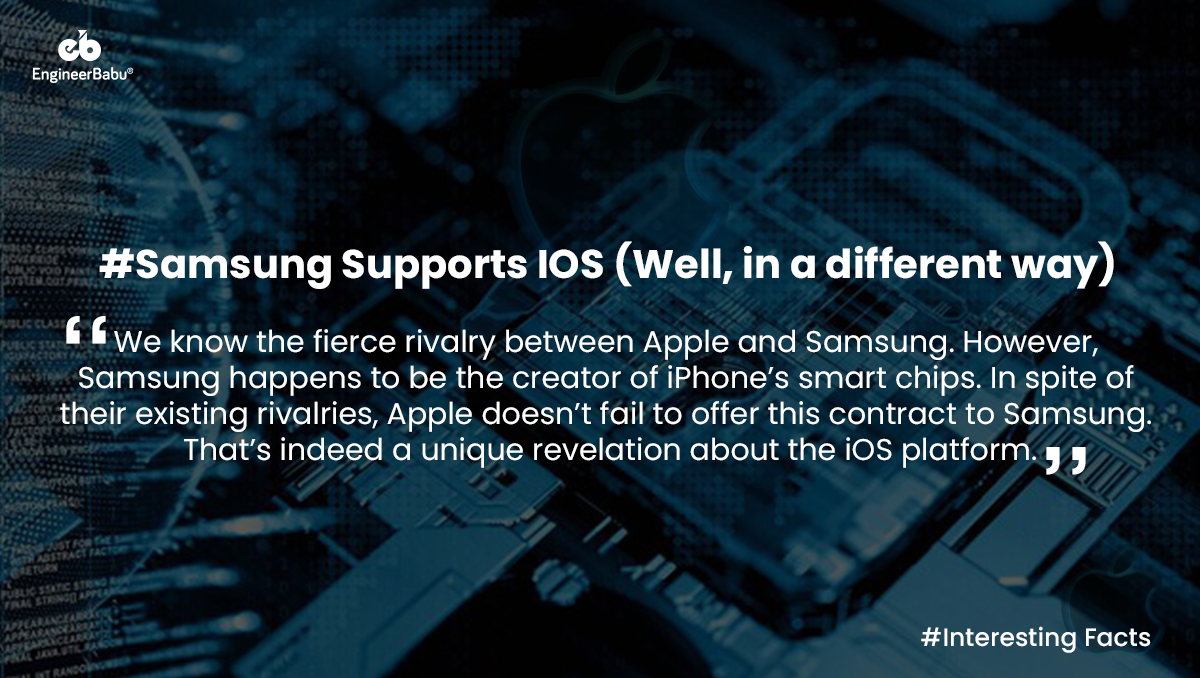
Responsible Factors that Drive the Cost of iOS App Development
-
Internal and External Resources for App Development
Different teams have different skills. App development services include four categories: strategy, design, engineering and growth, but some clients have internal teams with mobile experience to manage various pieces of the project.
For example, your team can define an app and design strategy, but it needs engineering help to build it. Or, you may need help with this strategy, but have designers in the staff manage the user experience and UI function before transferring to engineering. It is also noteworthy that mobile app recognition is a set of specific skills that is growing rapidly. If your team does not have mobile information, you may be able to help with related project pieces to keep costs down.
For example, an internal IT team may be able to build an API application that they may need, but they may struggle to build an application itself. The web development team can make a great website but it will have a strong learning curve if they are trying to build a traditional app for the first time. a major driver of app development costs.
-
Application Platforms
Deciding which platform to choose when developing an app-based experience is becoming increasingly difficult, as the number of devices enabled by the app increases. You can create and upgrade traditional mobile apps (Android or iOS), visual assistants (Alexa or Google Home), messaging forums (Messenger or Slack), IoT products (eg televisions). connected, home automation, smart cars, etc.), and niche applications for virtual reality. Hence, you can look to hire iOS developers to develop many kinds of apps for the above mentioned technologies.
All of these platforms require very different approaches to the design of the user experience and engineering. And even if you only look at a traditional phone, Android and iOS are very different. That is partly due to the large number of different Android devices, which can increase the cost of development and testing on that platform.
Good apps solve a problem or fulfill a need. Which problem-based platform you are solving (and the user base you have identified). We encourage our clients to find out what to build first, and then decide what (and what technology) to build.
-
Costs of Traditional Application Development vs Present Scenario
In addition to the platforms you choose for your app, you will also need to decide how to build those platforms. Many of our clients want to introduce mobile apps for both Android and iOS – and in some cases, it makes sense to use cross-platform development as Xamarin to save engineering time.
Use a mobile app platform to think (more than just code) and it helps reduce costs when you build multiple apps. For example, we have worked with our client EmployBridge on a mobile platform for 12 iOS and Android apps running shared apps. But using cross-platform technology doesn’t always make sense – using highly advanced technologies, such as the unpopular reality for taxpayers we see and applications that require usable features of the user interface or animation, can be very costly in design and development on traditional platforms. Hence, you can look to hire iOS developers to build your mobile application.
-
Backend and API Development
Apps are nothing but a consistent backdrop to handle data and content. Almost without an option, every app project incorporates an engineering function feature that allows the app to connect to the back end. That could mean a straightforward API built into a cloud-based server, such as AWS or Azure. But it can also include a middleware layer that integrates business asset data into the structure and makes it accessible to the application.
The number of variations involved in the back end can have a significant impact on application development costs. Even if the backend is in the right form, you will still need APIs that disclose information and give the app access to different pieces of data. All data sources you add will require additional engineering effort to integrate existing APIs, or to build your own.
Incomplete APIs can dramatically increase the cost of developing an application. Error upgrading to creating APIs simultaneously with the application. Usually, the result of that method is that the app will be blocked because it requires that data before upgrading. It works best for standalone extensions where APIs finish just before the application development team needs them.
-
Third Party Integration Cost
Apps usually contain a variety of features – including features from other sources. When applications include standard features from an operating system (e.g., an application that brings your location-based experience can be combined with a GPS phone), communication sources (e.g. widget), statistics (e.g. MixPanel), e-commerce (e.g. Apple). Pay etc. This integration takes extra time to develop and test.
One of the reasons we recommend MVP app development is the first release – especially to simplify the number of features – to keep the number of external integrations limited. You can always add integration to your app map. Too many builds in the first release can increase the cost of improving the application.
-
Images
The little things that build emotional connection in the app and keep people coming for more. One of the most common tools for giving apps something extra is to add animation to the interface. But any additional animation can drive app building and development costs. Inexperienced design teams sometimes make the mistake of designing too many images on the interface without thinking.
Define Budget, Timeline, and Manpower to Hire iOS Developers
When it comes to the quality and price of mobile app development, one of them usually weighs a lot. And, traditionally, the decision to turn to any company often leads to a map.
When looking for a development team, people look to the USA, UK, India and Ukraine. Here we want to compare prices based on differences in pascal strength in different countries. Therefore, it helps to define the budget of the application in relation to the country where you are exporting or hiring engineers.
Budget to Build iOS App
- According to Clutch, the average price to develop a Swift app for iOS and US and UK based companies is $ 50,000. However, the specific price of your application depends on many factors such as technology stock, design, failure plans and potential user travel.
- As compared to the US, the average hourly rate is usually much lower in the Ukraine (about $ 50 per hour). So the overall cost of iOS app development is much lower.
- India is known for its very low prices. For example, you will find independent developers in India at $ 10 per hour. If you are interested in hiring an IT company, the monthly project quotes can range from US 1000 USD to 99 2999 USD per month. Depending on the need of the project. Therefore, hire iOS developers to meet project needs.
Timeline to Build an iOS App
To hire iOS developers, the size of the project should be taken into account by the decision maker as long as it is a measure of the system services and therefore the time will be in a batch. In terms of size, we find it difficult to work with a business concept. The app development features may also include:
- Designs with animation
- Prototyping
- Custom solutions that require technical research
- Unexpected outcomes and changes along the way
Based on the above features and many other complex and functional features, applications can be divided into basic, intermediate and complex. Their costs are probably:
- It takes two months to build a simple iPhone system with basic functionality, which usually costs 5-10 thousand US dollars.
- It takes 2 months to upgrade a fashionable app, and it costs around 12-24 thousand dollars.
- Building iPad and iPhone app developments; With a deep database, excellent design, it can last up to 6 months, so the cost is $ 30-50 million.
Required Team Size
The cost depends largely on who chooses to upgrade your app – if you should hire iOS developers who are independent or hire iOS developers from a development company.
A startup company or an independent group of 5 to 10 people may charge a small fee to build your iOS app because their focus is on improving their portfolio rather than making money.
But it is important to choose your team of engineers wisely and go ahead and hire iOS developers to suit the needs of the project.
Below is the layout of the team involved in app development of a large-cap iPhone app development agencies.
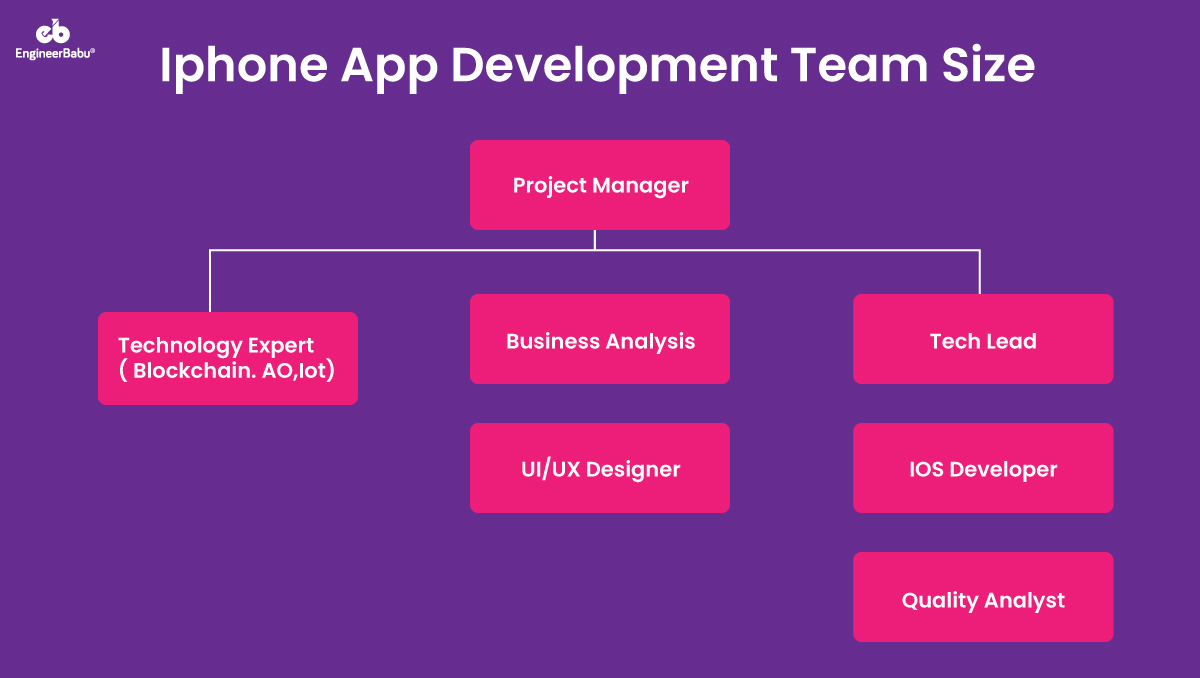
From Where to Hire iOS Developers?
There are always some doubts on the hiring options when it involves digital production. Although both outsourcing and out staffing weren’t invented by tech companies, it had been the digital technologies growing market, (and technology itself), that transferred the outsourcing concept to a replacement level of popularity.
So what to choose? A Freelance Developer or an Outsourcing Company!!!
-
Hire Freelance iOS Developers
Through credible portals (like GitHub and Upwork) or using partner recommendations you can hire dedicated iOS developers for remote working. Freelancer hiring may be a sort of outsourcing where your in-house project manager interacts directly with a foreign developer. In this case, the developer becomes a neighborhood of a traditional team but participates in meetings online.
Pros
- you can find an expert and experienced engineer with specific (rare) qualities
- you can pick the simplest iOS developer from the worldwide talent pool without regional limitation
- freelancers are cheaper than in-house workers and outsourced teams and you are doing not got to hold a physical equipped workplace for them in your office
- if you like to hire freelancer for a short period of time or for few hours; then you can simply pay them on hourly basis instead of monthly pay
- your HR department doesn’t manage the holiday , legal documentation, and dealing conditions of a freelancer
Cons
- high missed deadline risks
- hindered communication between the in-house team and freelancers that may lead to tech misunderstandings
- language, time zone, and cultural barriers
- no guarantees that a contract iOS developer spends the reported time performing on your tasks or whether or not they also serve other clients
- project security risks
-
Hire an Outsourcing Company
An outsourcing company is one that takes care of the entire project you’ve got assigned thereto. Design, tech stack, ongoing support, entire project management, and quality tracking are the foremost common issues that would be delegated to an outsourcing company.
You don’t get to distribute tasks among remote team members, track their efficiency, or hold numerous meetings. Instead, you provide an outsourcing company with the project tech requirements documents, discuss your expectations and aims, set deadlines, and obtain an outcome at the top. Hence, you can look to hire iOS developers to build your mobile application.
Pros
- you can find a whole team really fast as outsourcing companies constantly keep many specialists able to be involved during a new project
- no legal support for every remote iOS developer is required — you sign a contract with a development vendor only
- you do not manage the project directly, thus saving costs on many operational issues
- one iOS engineer are often easily substituted by another one if you don’t like them, the team are often expanded, (or contracted) at anytime
- high corporate professional standards that you simply can cross-check by reading client feedback
- dedicated development is less time-consuming than in-house
- you get a ready-to-use product at the end
Cons
- Even if you choose a reputable company, you’re likely to face deadline and quality issues
- Offshore iOS developers for outsourcing development means time zone, cultural, and language problems in communication
- Cooperation of this type is a smaller amount flexible and requires a transparent and comprehensive project documentation and development schedule.
Future Scope of iOS App Development
In recent years, the world has been overwhelmed with loads of trends in technologies that didn’t exist 10–15 years ago. What’s more interesting is that the way the longer term is being created through these concepts. If you think that you’ve seen it all with the apps developed and currently available on iOS so far , you’ll be absolutely stunned at how iOS app development will evolve over the next five years.
Here are 4 areas as a developer and entrepreneur you can look for in the future:
-
Artificial Intelligence
Artificial intelligence (AI) is a unique paradigm shifter. The forward-thinkers all over the world are creating new AI-based apps regularly within the iOS app development.
-
Augmented Reality
Augmented Reality(AR) is just as amazing as AI. AR made an enormous hit a few of years back when pokemon go introduced the planet to virtual monsters living in our world
In the next few years, AR is predicted to supply a more stunning trend in games and events. This trend of development is going to be seen within the iOS apps created over subsequent few years.
-
Internet of Things
The Internet of things keeps getting better as time goes by. Today IoT is making possible a lot of innovative things such as supporting exterior lights, doorbells, lights, door locks, speakers, television, home security systems, Apple TV streaming device, phone, tablets watch, and refrigerator all are connected with the web so that you can control or operate them while being at your comfort zone.
While the iOS app development isn’t improving the IoT experience with great care you’ll see what proportion food you’ve got left within the fridge, IoT is improving the quality of choices that you simply make and supports the knowledge you now need to access.
-
Cloud-based Apps
Some iOS app development experts have predicted that cloud-based apps are a subsequent big thing in iOS development. They say that within the subsequent few years, quite half all international businesses and organizations will have a minimum of one native cloud-based app.
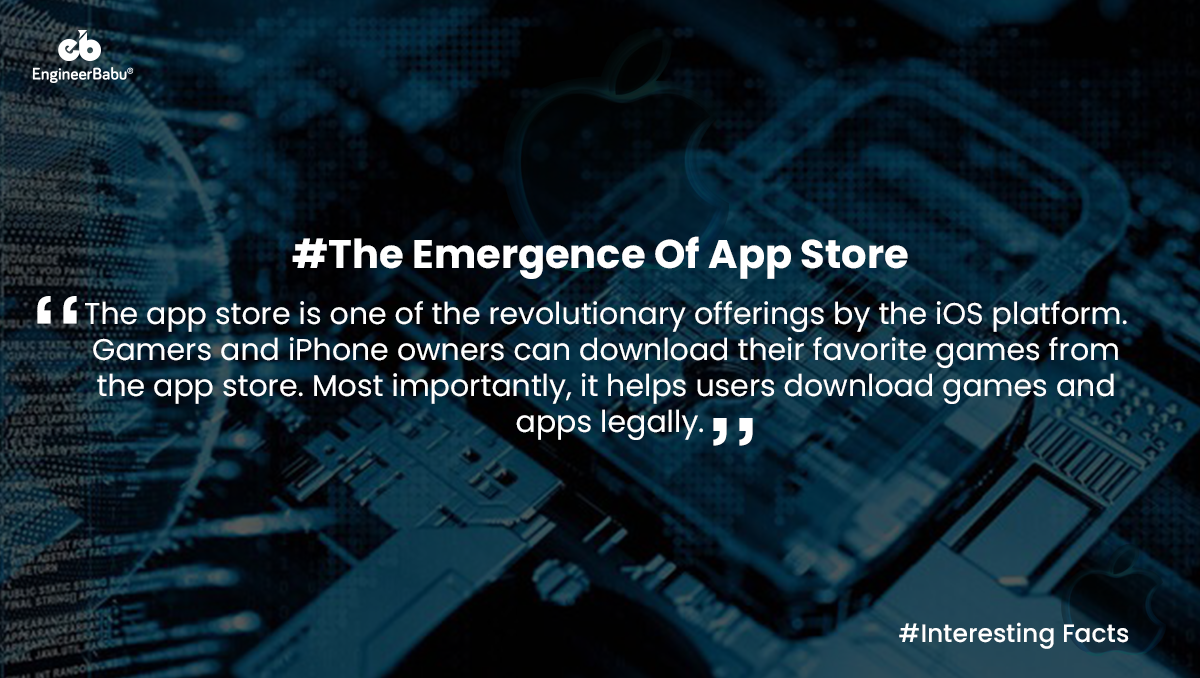
Required Skills to Hire iOS Developers
The number of years of experience and location (in terms of city and country) are the two crucial factors that affect salaries. Apart from that, the third important and right skill set majorly depends on the level of experience. Most importantly the developer specifically worked on size and feature-rich projects. You should consider these requirements before deciding to hire iOS developers.
Hence, the required technical and soft skills are as follows;
Required Technical Skills to Hire iOS Developers
- Objective-C and/or Swift programming languages,
- iOS SDK,
- Apple’s Interface Guidelines,
- Frameworks and APIs like Foundation, UIKit, and CocoaTouch,
- Apple’s Xcode IDE,
- Familiarity with iOS 10 and newer OS versions,
- OpenGL or Metal, iOS graphics APIs,
- Serializes model objects into JSON to send to a REST API,
- Multiple navigation types with tab bar controllers, navigation controllers, and page view controllers – and combinations of them,
- APIs understanding and integration experience,
- Metal and OpenGL knowledge.
Required Soft-Skills to Hire iOS Developers
- Spatial Reasoning
- Creative
- Adaptable
- Fast and Productive
- Analytical Skills
- Team Work
- Empathy
- Open-mindedness
Evolving Trends to Hire iOS Developers
With instant apps growing in prominence, it seems like it’s been forever since Swift started to dominate the iOS development market. More than 180,000 developers mentioned using Swift as their current working language. It has also become the go-to choice for each new app and new feature built post-2015.
Number of iOS Developers Globally
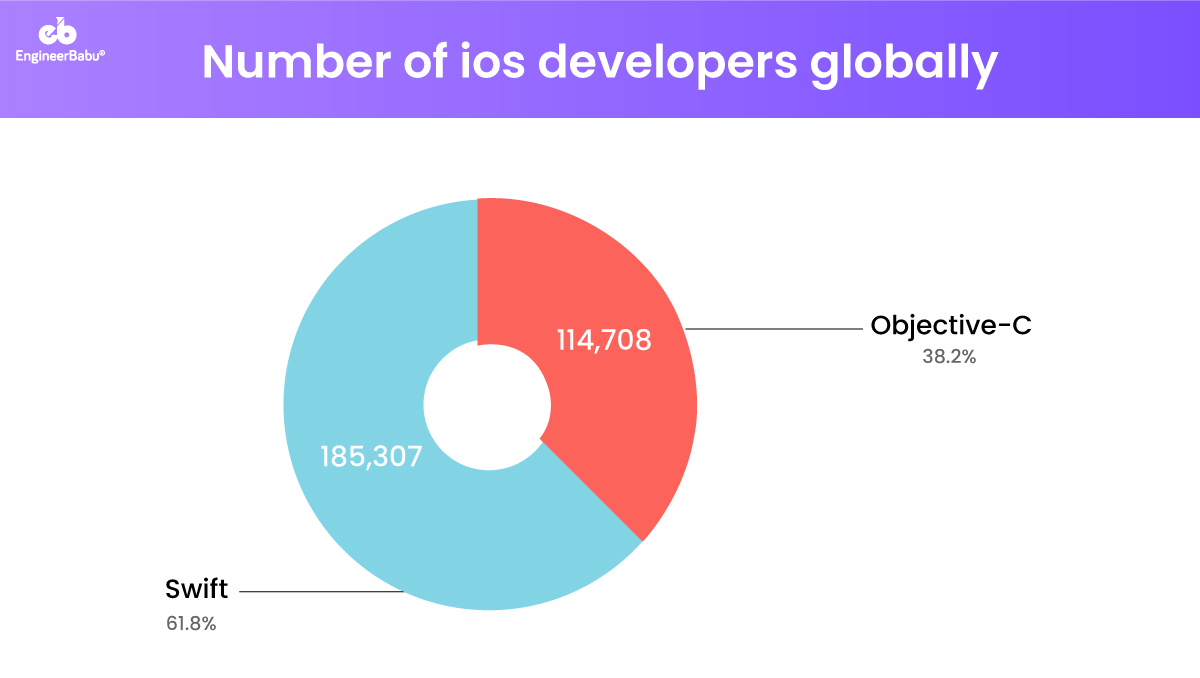
The above graph represents the distribution of iOS developers working globally based on their technical specialization in Swift and Objective-C. Hence, you can look to hire iOS developers to build your mobile application.
Demand of Hiring Swift & Objective-C Developers by Country
The increasing demand of iOS development presents a stiff competition between Swift programming and Objective-C specialization and increasing the demand to hire iOS developers with such skills.
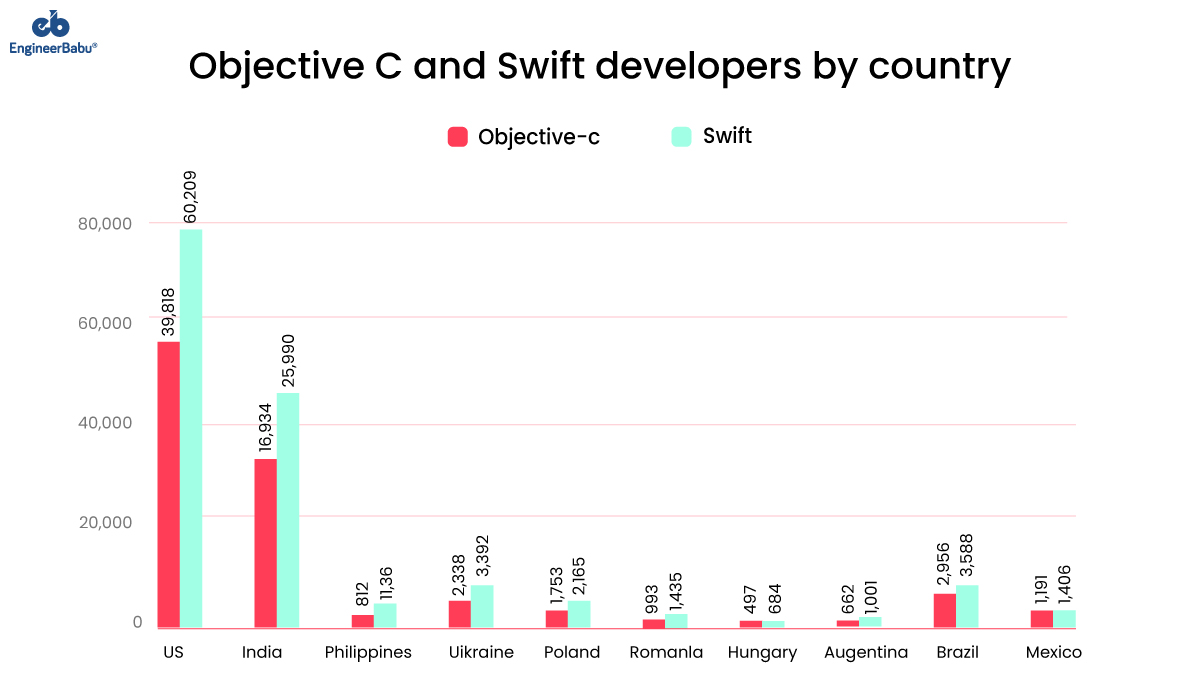
The above graph shows that demand for Swift developers dominates in all locations, yet the percentage of Objective-C developers remains significant in the field to hire iOS developers in different countries.
The spectrum of a mobile app development hourly rate for various countries is predictably dominated by North America where mobile software developers ask $150 per hour and on the other side is Indonesia where developers are able to code apps for around $10 per hour. In fact US and Australia, where developers code for about $110 / hour, are the sole countries where mobile app development costs quite $100 per hour. Therefore, you can hire iOS developers in this region.
Average iOS Developer Salary in Developed Countries
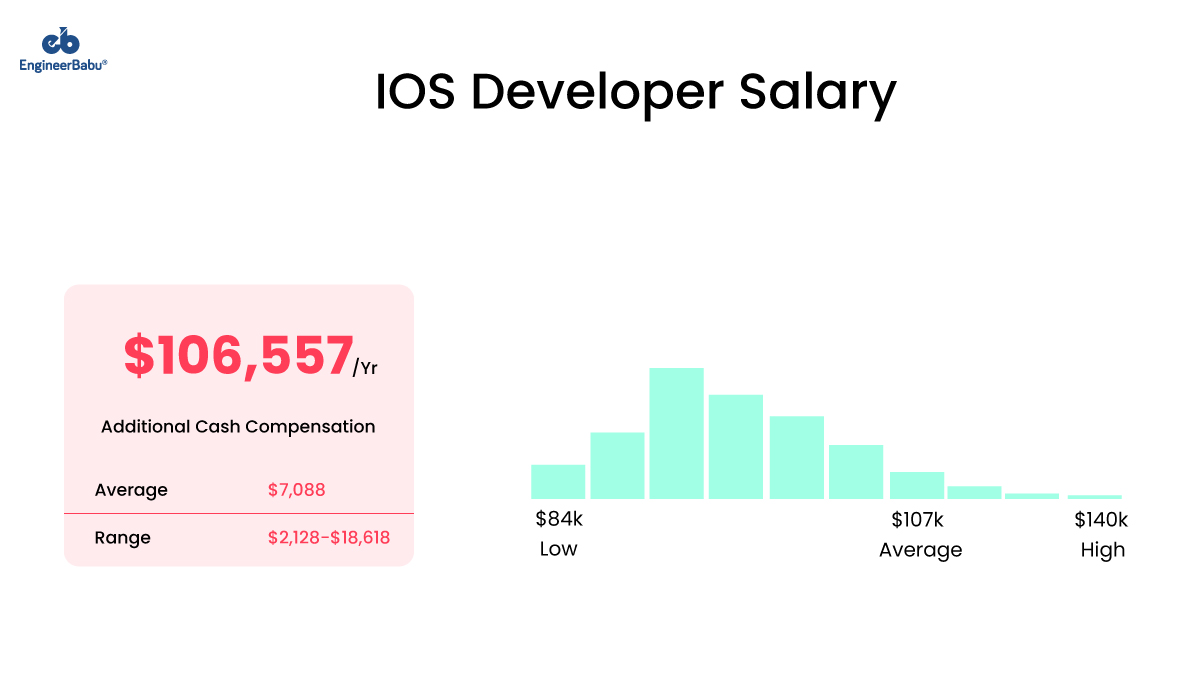
iOS App Developer Annual Salary, by Experience
At Beginner-level (0-5 years of experience) iOS developers expect to be paid about $80k a year. Whereas, developers with 5-10 years of experience can earn additional $20-40k of annual income. Apart from that, the iOS development professionals with more than 20 years of experience can expect to earn about $120k or more a year.

Average Salary of iOS Developer in India
The average salary for an iOS Developer in India is ₹465,348 annually. However, it may vary a lot based on the experience and technical expertise of the developers. Hence, you can look to hire iOS developers to build your mobile application.
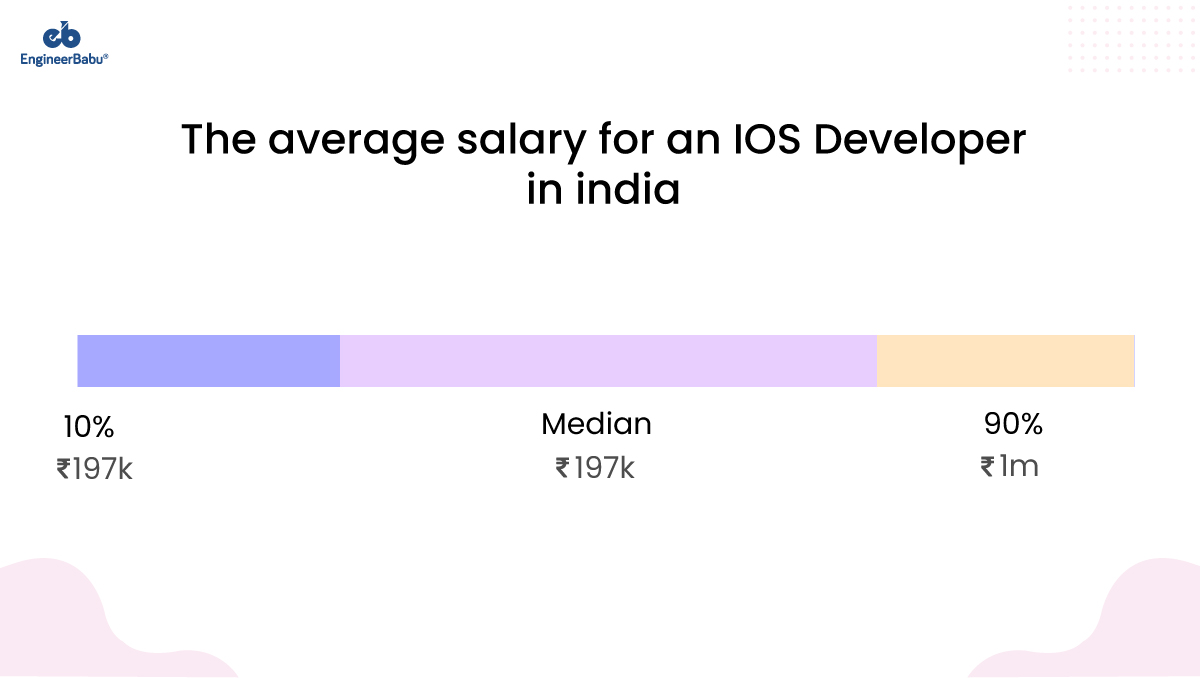
Let’s Wrap Up
So, in this blog post, we have seen various aspects of iOS app development as it also has many benefits which helps to transform the businesses digitally. But, one crucial factor of the success of your mobile application is to hire iOS developers who have rich domain expertise in creating such kinds of applications.
Dedicated iOS Developers are well informed about the iOS evolving coding standards and rigorously follow the Apple’s Guidelines to the core. Hire iOS Developers to build apps that excel in functional design, code performance, scalability, and user experience.
Generally, the iOS app developers are professional experts in a number of iOS development languages, like Swift UI, Objective C, and have phenomenal skills in CoreAnimation, CoreGraphics, CoreML, WatchKit, SiriExtensions, etc.
We hope this article delivered a quick understanding of how switching to iOS app development is certainly worth considering, so do it early enough and beat the rush hour traffic.
Don’t hesitate to help us keep updated by sharing your experience with us here.


